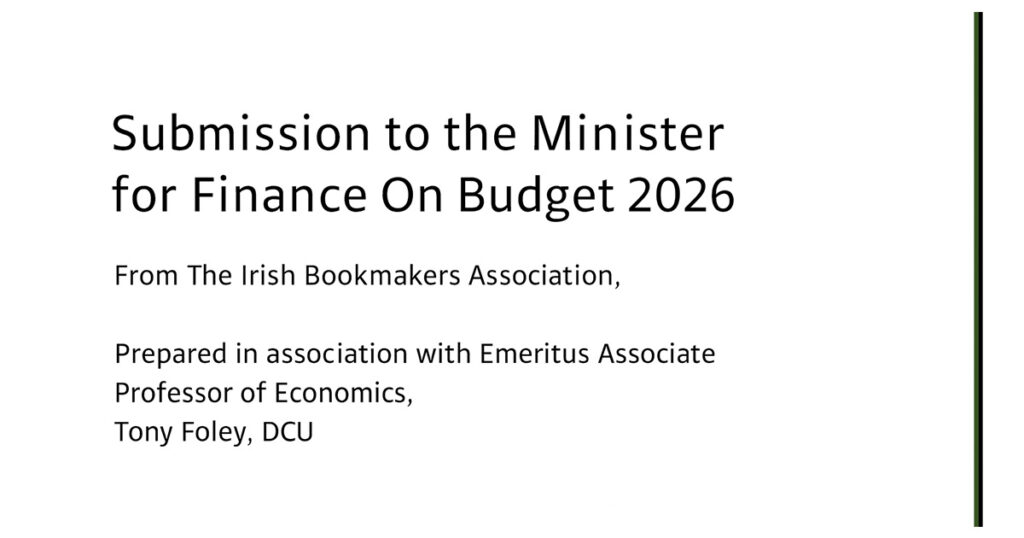Earlier this month, we submitted our recommendations to the Minister for Finance in advance of Budget 2026, prepared in association with Emeritus Associate Professor of Economics, Tony Foley (DCU). In our submission, we called on Government to maintain the current 2% betting duty rate and avoid introducing any new taxes or levies on the sector at a time when operators are already facing significant cost pressures and major regulatory change under the Gambling Regulation Act 2024.
We highlighted that the Irish betting industry employs more than 6,000 people across the country and contributes over €170 million each year to the Exchequer, through employment taxes, betting duty, and VAT on purchases and services.
Despite broader economic growth, the sector continues to face a decline in retail betting turnover, rising costs, and falling profitability. Since the betting duty doubled in 2019, the number of betting shops has fallen by nearly 18%, dropping from 833 to 714 nationwide. Compared with the industry peak in 2008 of 1385 shops, shop numbers have now halved, reflecting the deep commercial pressures facing the sector.
At the time of our submission, there were 731 betting shops in operation nationwide. However, since then, this has dropped to 714, and Flutter has announced that they will be closing a further 28 shops over the coming weeks.
We also highlighted that any further cost increases would accelerate closures, reduce legitimate market participation, and push more customers towards unregulated black-market operators, which would ultimately weaken consumer protection and reduce Exchequer returns.
We reaffirmed our full support for the establishment of the Gambling Regulatory Authority of Ireland (GRAI) and the introduction of a Social Impact Fund, while stressing that all new compliance and licensing costs should be fair, proportionate, and sustainable for licensed operators.
“A period of major regulatory transition required stability, not further strain. Increasing betting duty before the new licensing system was even operational would have been the wrong timing and risked undermining the objectives of the Gambling Regulation Act.”
Our submission focused on five key messages:
-
- Maintain the 2% betting duty rate
-
- Recognise the sector’s substantial employment and fiscal contribution
-
- Keep regulatory and social impact costs proportionate
-
- Support retail betting shops as part of wider SME measures
-
- Prevent further growth in black-market activity
